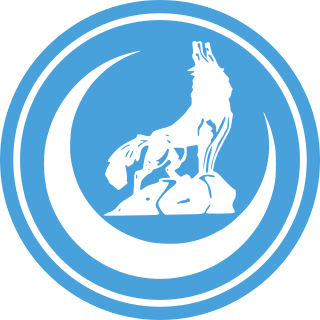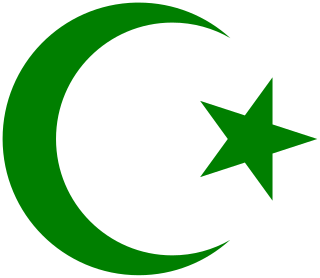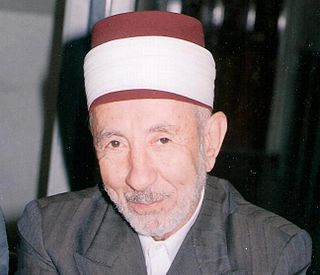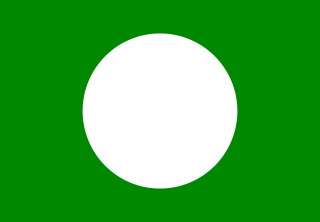 W
WThe Grey Wolves, officially known as Idealist Hearths, is a Turkish far-right organization and movement affiliated with the Nationalist Movement Party (MHP). Commonly described as ultranationalistic, Islamistic and neo-fascist, it is a youth organization that has been characterized as MHP's paramilitary or militant wing. Its members deny its political nature and claim it to be a cultural and educational foundation, as per its full official name: Ülkü Ocakları Eğitim ve Kültür Vakfı.
 W
WIslamism definition refers to a "broad set of political ideologies that utilize and draw inspiration from Islamic symbols and traditions in pursuit of a sociopolitical objective."
 W
WThe 1990s uprising in Bahrain also known as the uprising of dignity was an uprising in Bahrain between 1994 and 1999 in which leftists, liberals and Islamists joined forces to demand democratic reforms. The uprising caused approximately forty deaths and ended after Hamad bin Isa Al Khalifa became the Emir of Bahrain in 1999 and a referendum on 14–15 February 2001 massively supported the National Action Charter. The uprising resulted in the deaths of around 40 civilians and at least one Bahraini soldier.
 W
WThe Black Banner or Black Standard is one of the flags flown by Muhammad in Muslim tradition. It was historically used by Abu Muslim in his uprising leading to the Abbasid Revolution in 747 and is also associated with the Abbasid Caliphate. It is also a symbol and is associated with the Islamic eschatology. The Black Banner, which is different from the flag used by ISIL, has been used by some jihadist and other militant groups since the 1990s, including some Chechen groups. Scholars have interpreted ISIL's use of a similar black flag as representing their claim to re-establishing a Caliphate. Similar black flags have been used throughout Islamic history, including in Afghanistan during the early 20th century.
 W
WMohammed Said Ramadan Al-Bouti was a notable Sunni Muslim scholar who was also known as "Shaykh of the Levant". He was killed on 21 March 2013, during the Syrian civil war, reportedly in a bomb explosion, though "many questions about the death" have been raised by videos of the scene.
 W
WThe ideas and practices of the leaders, preachers, and movements of the Islamic revival movement known as Islamism have been criticized by non-Muslims and Muslims.
 W
WThe Gagasan Sejahtera is a defunct coalition of opposition Islamist political parties which promote the "ideas of peace" in Malaysia. The coalition was formed initially as a Third Force on 16 March 2016, consisting of Pan-Malaysian Islamic Party and Parti Ikatan Bangsa Malaysia and announced that it will be formally called Gagasan Sejahtera on 13 August 2016. It is a successor to Pakatan Rakyat. Pan-Malaysian Islamic Front joined the coalition on 23 September 2016.
 W
WGender segregation in Islamic law, custom, law and traditions refers to the practices and requirements in Islamic countries and communities for the separation of men and boys from women and girls in social and other settings. Scholars differ as to whether the Qur'an requires gender segregation, and, if so, the hadith that require it. There are diverging opinions among experts in Islamic theology concerning gender segregation.
 W
WThe Indonesian Islamic Propagation Council is a Sunni Islamic organization in Indonesia which aimed at dawah (proselytizing). The organization is considered one of the most prominent dawah organisations in modern Indonesia. It is also noted for being the primary receiver of funding for Islamic activities in Indonesia from Saudi Arabia.
 W
WStarting in the mid-1970s and 1980s, conservative/strict/puritanical interpretations of Sunni Islam favored by the Kingdom of Saudi Arabia have achieved what political scientist Gilles Kepel calls a "preeminent position of strength in the global expression of Islam." The interpretations included not only "Wahhabi" Islam of Saudi Arabia, but Islamist/revivalist Islam, and a "hybrid" of the two interpretations.
 W
WFollowing the embargo by Arab oil exporters during the Israeli-Arab October 1973 War, and the vast increase in petroleum export revenue that followed, conservative-puritan interpretations of Sunni Islam favored by the conservative oil-exporting Kingdom of Saudi Arabia, achieved a "preeminent position of strength in the global expression of Islam." The interpretations not only included Salafiyya Islam but also Islamist/revivalist Islam, and a "hybrid" of the two interpretations.
 W
WIslams and Modernities is a book by Aziz al-Azmeh, a professor at Central European University in Budapest, Hungary. It was released in 1993. The book explores the history of interaction between Islam and Europe, analyzing myths about those interactions created by Orientalist and Islamist viewpoints. A new version was released on August 7, 2009, also examining "the discourse surrounding Islamism and irrationalism after 9/11."
 W
WThe Islamic Defenders Front was an Indonesian hardline Islamist organization founded in 1998 by Muhammad Rizieq Shihab with backing from military and political figures. The organization's leader since 2015 is Ahmad Shabri Lubis, while Rizieq Shihab has the title of Grand Imam of the FPI for life. The FPI originally positioned itself as an Islamic moral police force against vice, conducting vigilante activities. It also acted as an Islamist pressure group with online campaigns and mass mobilizations against pro-democracy activists, Chinese Indonesians and reformist politicians.
 W
WIslamic fundamentalism has been defined as a puritanical, revivalist, and reform movement of Muslims who aim to return to the founding scriptures of Islam. Islamic fundamentalists are of the view that Muslim-majority countries should return to the fundamentals of an Islamic state, which truly show the essence of the system of Islam, in terms of its socio-politico-economic system. Islamic fundamentalists favor "a literal and originalist interpretation" of the primary sources of Islam, seek to eliminate "corrupting" non-Islamic influences from every part of their lives, and see "Islamic fundamentalism" as a pejorative term used by outsiders for Islamic revivalism and Islamic activism.
 W
WIslamic revival refers to a revival of the Islamic religion. The revivers are known in Islam as Mujaddids.
 W
WAn Islamic state is a form of government which is based on Islamic law. As a term, it has been used to describe various historical polities and theories of governance in the Islamic world. As a translation of the Arabic term dawlah islāmiyyah it refers to a modern notion associated with political Islam (Islamism).
 W
WIslamistan is a Persian, Pashto and Urdu term referring to Dār al-Islām.
 W
WIslamization, Islamicization or Islamification, is the process of a society's shift towards the religion of Islam and becoming Muslims, such as found in the Levant, North Africa, Horn of Africa, Iran, Pakistan, Bangladesh, Malaysia or Indonesia. In contemporary usage, it may refer to the perceived imposition of an Islamist social and political system on a society with an indigenously different social and political background.
 W
W"Islamic fascism", also known since 1990 as "Islamofascism", is a term drawing an analogy between the ideological characteristics of specific Islamist movements and a broad range of European fascist movements of the early 20th century, neofascist movements, or totalitarianism.
 W
WThe jihadist flag is a flag used by various Muslims for jihad. It is usually consisting of a black background with a white text of the shahada emblazoned across it in calligraphy style writing. Its usage was widely adopted by jihadists in the early 2000s, and in the 2010s by the Islamic State of Iraq and the Levant. The flag has also been used by various Muslim terrorist organizations.
 W
WMadkhalism is a strain of Islamist thought within the larger Salafist movement based on the writings of Rabee al-Madkhali. Arab states have generally favored Madkhalism due to its support for secular forms of government as opposed to other strains of Salafism, and Madkhalism's decline in Saudi Arabia has been connected with a decline in support for secular forms of government in the Muslim world.
 W
WThe Malaysian Islamic Party is an Islamist political party in Malaysia. PAS's electoral base is in Peninsular Malaysia's rural and conservative north and east coast.
 W
WThe Mirage is a book written by Jamal Sanad Al-Suwaidi, Director of the Emirates Center for Strategic Studies and Research in Abu Dhabi, UAE. This book, originally published in Arabic as “Al-Sarab”, is a review of the history, origin, evolution, practices and objectives of political Islam in Arab and Muslim societies. It also explains the danger of related political religious groups. Its title is a metaphor about the misleading religious solutions proposed by Islamist groups, to contemporary social problems.
 W
WFeiz Mohammad is an Australian Muslim preacher of Lebanese descent.
 W
WNeo-Ottomanism is an imperialist Turkish political ideology that, in its broadest sense, promotes greater political engagement of the Republic of Turkey within regions formerly under the rule of the Ottoman Empire, the predecessor state that covered the territory of modern Turkey among others.
 W
WPolitical Islam is any interpretation of Islam as a source of political identity and action. It can refer to a wide range of individuals and/or groups who advocate the formation of state and society according to their understanding of Islamic principles. It may also refer to use of Islam as a source of political positions and concepts. Political Islam represents one aspect of the Islamic revival that began in the 20th century, and not all forms of political activity by Muslims are discussed under the rubric of political Islam. Most academic authors use the term Islamism to describe the same phenomenon or use the two terms interchangeably. There are new attempts to distinguish between Islamism as religiously based political movements and political Islam as a national modern understandings of Islam shared by secular and Islamist actors.
 W
WPost-Islamism is a neologism in political science, the definition and applicability of which has led to an intellectual debate. Asef Bayat and Olivier Roy are among the main architects of the idea.
 W
WThe release of the anti-Islamic short film Innocence of Muslims triggered numerous demonstrations across North Africa, the Middle East and South Asia. On September 11, 2012, dozens of protestors scaled the walls and entered the courtyard of the U.S. embassy in Cairo, Egypt. On September 13, 2012 protests occurred at the U.S. embassy in Sana'a, Yemen, resulting in the deaths of four protesters and injuries to thirty-five protesters and guards. On September 14, the U.S. consulate in Chennai was attacked, resulting in injuries to twenty-five protesters. Protesters in Tunis, Tunisia, climbed the U.S. embassy walls and set trees on fire. At least four people were killed and forty-six injured during protests in Tunis on September 15. Further protests were held at U.S. diplomatic missions and other locations in the days following the initial attacks. Related protests and attacks resulted in numerous deaths and injuries across the Middle East, Africa, Pakistan, and Afghanistan.
 W
WRegressive left is a pejorative term for a branch of left-wing politics that is accused of being accepting of or sympathetic to views that conflict with liberal principles, especially tolerating Islamism.
 W
WSalafi jihadism or jihadist-Salafism is a transnational, hybrid religious-political ideology based on Sunni Islamism seeking a global caliphate, advocacy for "physical" jihadism and Salafi concepts of returning to what adherents believe to be "true Islam". The ideological foundation of the movement was laid out by a series of prison-writings of the Egyptian Islamist theoretician Sayyid Qutb during the 1960s.
 W
WQuasi-state-level jihadist groups, including Boko Haram and the Islamic State of Iraq and the Levant, have captured and enslaved women and children, often for sexual slavery. In 2014 in particular, both groups organised mass kidnappings of large numbers of girls and younger women.
 W
WThe Wahhabi movement or Wahhabism is a Sunni Salafi religious reform movement associated with the teachings of the 18th-century Arabian revivalist scholar Muhammad ibn Abd al-Wahhab. It has been variously described as "orthodox", "puritan(ical)"; and as an Islamic "reform movement" to restore "pure monotheistic worship" by devotees. The term Wahhabi(sm) is chiefly used by outsiders polemically and adherents reject its use, preferring to be called "Salafi", and view themselves as 'Muwahhid', to emphasize the principle of Tawhid. The term has also been described as a Sunniphobic slur. It adheres to the Athari theology.